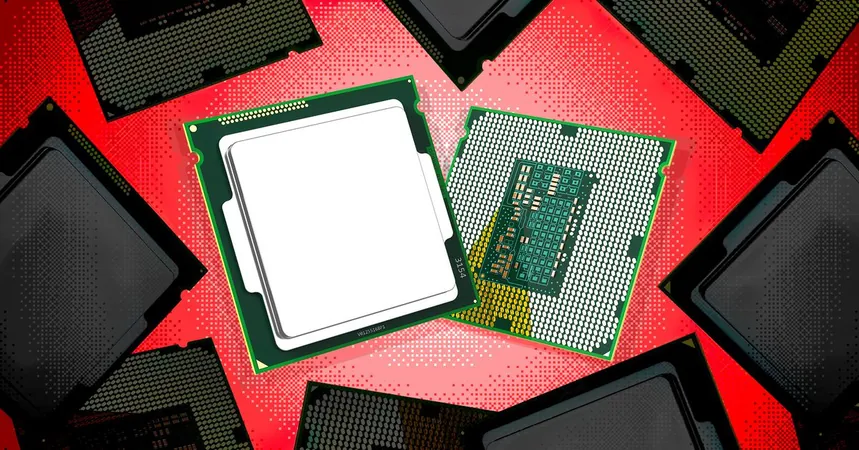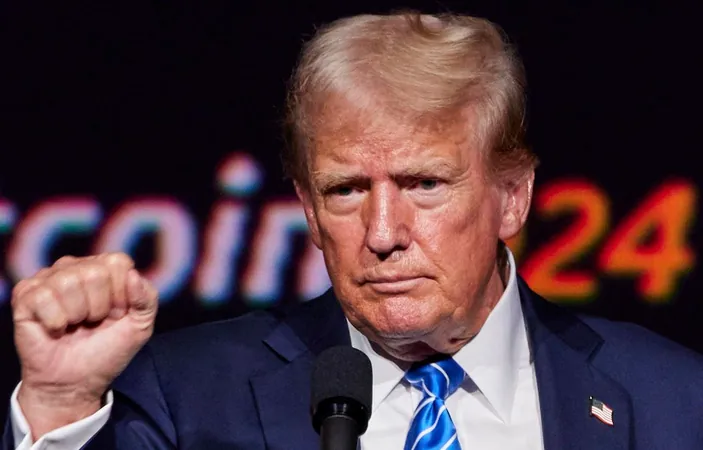
Escalating Tensions: China Restricts Chipmaking Material Exports to the US Following Sanctions
2024-12-03
Author: Wai
Introduction
In a significant escalation of trade tensions, China has announced new restrictions on the export of critical chipmaking materials to the United States, just one day after the Biden Administration unveiled sanctions aimed at hampering China's semiconductor production capabilities. This development could have far-reaching implications for the global tech industry.
China's Export Restrictions
On Tuesday, the Chinese Ministry of Commerce stated that it would prohibit the export of vital minerals like gallium, germanium, antimony, and other materials that may have military applications. This decision is framed as a measure to protect national security, significantly raising the stakes in what has been termed a 'tech cold war' between the two nations. Furthermore, China will now impose stricter scrutiny on graphite exports, which is also essential for many technological processes.
US Response
In a coordinated effort, the US Department of Commerce announced new regulations on Monday designed to 'further impair' China's ability to produce advanced semiconductors vital for artificial intelligence and defense systems. These regulations impose limitations on the equipment and software necessary for semiconductor manufacturing and introduce export bans affecting 140 additional Chinese companies.
Strategic Emphasis from US Officials
US Secretary of Commerce Gina Raimondo emphasized the strategic nature of these actions, stating, 'This action is the culmination of the Biden-Harris Administration’s targeted approach, in concert with our allies and partners, to impair the PRC’s ability to indigenize the production of advanced technologies that pose a risk to our national security.'
China's Tightening Control
In recent months, China has tightened its control over the export of rare materials. Notably, it started limiting antimony exports in September—an essential component for both chipmaking and military manufacturing—and has begun requiring exporters to provide exhaustive explanations of how these materials will be utilized in Western supply chains.
Political Landscape and Future Implications
With the political landscape evolving rapidly, the situation could intensify further. President-Elect Donald Trump has already hinted at enacting additional tariffs on Chinese goods, a move that could exacerbate the already fraught trade relations. This ongoing rivalry not only impacts the two nations but also poses risks for global supply chains and tech innovations.
Industry Experts' Warnings
As both countries dig their heels in, industry experts warn that this tug-of-war over semiconductor materials and technology may create unintended consequences, including increased product prices and slower technological advancements worldwide. The world watches closely to see how this dispute unfolds in the coming months.





 Brasil (PT)
Brasil (PT)
 Canada (EN)
Canada (EN)
 Chile (ES)
Chile (ES)
 España (ES)
España (ES)
 France (FR)
France (FR)
 Hong Kong (EN)
Hong Kong (EN)
 Italia (IT)
Italia (IT)
 日本 (JA)
日本 (JA)
 Magyarország (HU)
Magyarország (HU)
 Norge (NO)
Norge (NO)
 Polska (PL)
Polska (PL)
 Schweiz (DE)
Schweiz (DE)
 Singapore (EN)
Singapore (EN)
 Sverige (SV)
Sverige (SV)
 Suomi (FI)
Suomi (FI)
 Türkiye (TR)
Türkiye (TR)